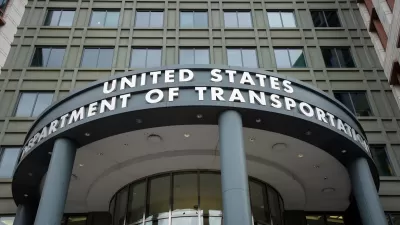Philadelphia is providing a living case study of the tenants of the Donald Shoup-approach to parking.
Jon Geeting reports on a parking inventory of Center City Philadelphia released recently by the city's Planning Commission. The inventory produces a few findings that reconcile with contemporary thinking about parking, in line with the lessons of Donald Shoup.
The inventory, produced every five years, tracks the effects of a wave of construction in Center City, which reduced the number of off-street public parking spaces by 3,623, or 7.2 percent. Geeting explains the potentially surprising effect of the reduced parking:
"One might guess that losing more than 3,600 parking spaces in a five year span would drive up occupancy rates in the remaining lots and garages, but on the whole this hasn't been the case. Counterintuitively, parking occupancy actually declined by 1.7 percent during this period, from 75.6 percent down to 73.9 percent."
To more explicitly call out the kind of people who doubt the contemporary planning wisdom about parking, Geeting adds this passage later in the article:
"The idea that building more parking capacity will only increase the number of cars in a neighborhood, or conversely, that removing parking spaces can reduce the number of cars often gets short shrift at neighborhood zoning meetings, but the evidence here suggests this is basically how things work."
The article goes into a lot more detail about the inventory's findings, and also ties back to some of the politics of parking in the city—including how it has brought about the city's ongoing lack of dynamic parking pricing.
FULL STORY: Study: Center City lost 7 percent of its public parking spaces in the last five years

Planetizen Federal Action Tracker
A weekly monitor of how Trump’s orders and actions are impacting planners and planning in America.

Restaurant Patios Were a Pandemic Win — Why Were They so Hard to Keep?
Social distancing requirements and changes in travel patterns prompted cities to pilot new uses for street and sidewalk space. Then it got complicated.

Maui's Vacation Rental Debate Turns Ugly
Verbal attacks, misinformation campaigns and fistfights plague a high-stakes debate to convert thousands of vacation rentals into long-term housing.

In California Battle of Housing vs. Environment, Housing Just Won
A new state law significantly limits the power of CEQA, an environmental review law that served as a powerful tool for blocking new development.

Boulder Eliminates Parking Minimums Citywide
Officials estimate the cost of building a single underground parking space at up to $100,000.

Orange County, Florida Adopts Largest US “Sprawl Repair” Code
The ‘Orange Code’ seeks to rectify decades of sprawl-inducing, car-oriented development.
Urban Design for Planners 1: Software Tools
This six-course series explores essential urban design concepts using open source software and equips planners with the tools they need to participate fully in the urban design process.
Planning for Universal Design
Learn the tools for implementing Universal Design in planning regulations.
Heyer Gruel & Associates PA
JM Goldson LLC
Custer County Colorado
City of Camden Redevelopment Agency
City of Astoria
Transportation Research & Education Center (TREC) at Portland State University
Jefferson Parish Government
Camden Redevelopment Agency
City of Claremont





























